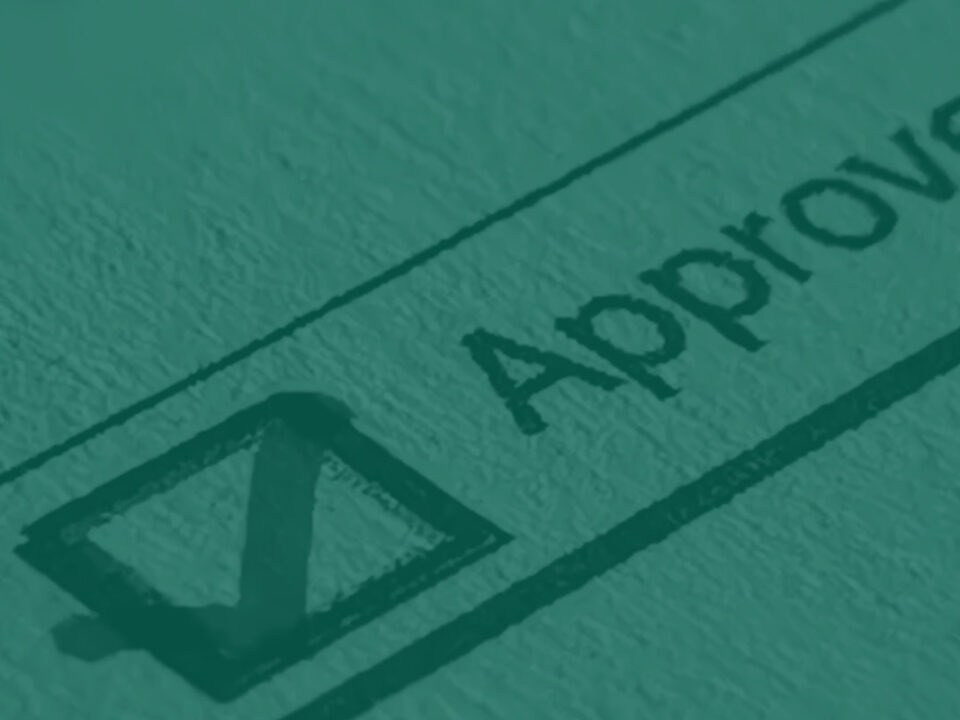This Article was updated on June 21st, 2023
- Services
- [email protected]
- Dubai: +971 4 878 6240 Riyadh: +966 56 865 2329

Comprehensive Guide to Setting Up Your Business in Dubai
February 12, 2019
Guide For Writing A Winning Business Plan To Enter The UAE Market
April 16, 2019
HOW TO OPEN A COMPANY BANK ACCOUNT IN DUBAI, UAE
This article has been researched and written by Scott Cairns and the team at Creation Business Consultants and has not used AI in generating this article.
Once your Dubai company setup is complete the next step to consider is the corporate banking options that are available to you and your company. Opening a UAE corporate bank account can be stressful for shareholders and company owners. New implemented guidelines, ever-changing compliance regulations, international banking protocols combined with expectations required from the banks over the recent years can make it very time consuming.
Business owners might find the task of getting corporate banking much more tedious than the form filing and compliance checks that was required for their Dubai company setup. Banking in the UAE may differ from what you are used to in your home country.
The good news is that once you have selected the right company structure, you can easily overcome the major banking hurdles and could be eligible for UAE corporate banking and enjoy the benefits of no corporate or personal tax.
UAE BANKING FACTS
- There are three (3) types of banks in the UAE: Central, Conventional, Islamic.
- All banks are regulated by the Central Bank of United Arab Emirates, which is tasked with ensuring the financial soundness of each type of banking institution.
- UAE conventional banks’ assets reached AED 3.047 trillion by end of January 2023.
- The Central Bank’s statistics indicated that conventional banks in the UAE accounted for 83.1 percent of the total assets in the banking sector by the end of January 2023, which amounted to AED 3.668 trillion, while Islamic banks accounted for 16.9 percent.
- The total credit of conventional banks was AED 1.477 trillion at the end of January 2023, an annual increase of 4.3 percent, while deposits in conventional banks increased to AED 1.799 trillion at the end of January 2023, an annual increase of 15.2 percent.
- Total conventional bank investments recorded an annual increase of 12.9 percent to AED 430.2 billion by the end of January 2023.
- Larger banks lead the country’s banking industry, with the five biggest banks accounting for about 60% of the sector’s assets.
- Islamic banking includes eight full-fledged Islamic banks and 23 Islamic windows set up by conventional banks in the UAE, collectively accounting for 19% of the total banking sector assets.
- Credit financing provided by the UAE national banks to the trade and industry sectors grew 6.1% YoY, or AED42.5 bn in the first three months of 2023, according to recent data issued by the Central Bank of the UAE (CBUAE).
- The statistics showed that the cumulative balance of credit provided by national banks to the two sectors amounted to AED735.2 bn at the end of March compared to some AED692.7 bn in the corresponding period last year.
The UAE Central Bank is the financial regulatory authority for the country. Currently the commercial banks are divided into two (2) categories:
1. Locally incorporated banks
Currently, there are twenty-five (25) local banking institutions, and most local banks are listed as Private Joint Stock Companies.
2. Branches of foreign banks
There are thirty-six (36) different foreign branches established in the UAE.
DOCUMENTS REQUIRED FOR OPENING A UAE CORPORATE BANK ACCOUNT
Below we have listed some of the main documents that is required to assist with Dubai and UAE company bank account opening. This includes and is not limited to:
- Valid Trade License.
- Certificate of Incorporation / Registration.
- Share Certificate(s).
- Company Memorandum & Articles of Association.
- Board Resolution authorising a Company Officer to open the account (if applicable).
- Passport copies for shareholders and authorised signatories (if applicable).
There are additional banking documents that will be required, and this will depend on the bank, corporate structure, and business activities your company performs.
Please note that a bank reserve the right to request additional documents and explanations to complete its due diligence. The following additional documents which may be required are:
- Copies of contracts and agreements.
- Invoices from supplier or receipts issued to customers.
- Reference letters and so forth.
Banking representatives need to prove to the regulators that they in fact Know Your Client (KYC) well, along with being able to understand the nature of the business and where funds have been sourced to comply with Anti-Money Laundering (AML) checks.
WHY IS BECOMING MUCH HARDER TO GET A COMPANY BANK ACCOUNT IN DUBAI & THE UAE?
CENTRAL BANK
Compliance, due diligence, increase sanctions are the main contributors and this is also felt globally. Banks that function as international corresponding banks are regularly fined by the government for not following such rigorous protocols. As a result, banks are more careful and vigilant in account checking and on-boarding. Therefore it has a delay for the end user which is challenging for business owners in the UAE and worldwide. Banks need to ensure that they know the source of money from a supplier or customer you deal with and to ensure there are no sanctioned countries involved.
INTERNATIONAL CORRESPONDING BANK ROLE
The role of international corresponding banks is essential in any bank operation. Hence, this need for protection is experienced by customers as banks become stricter to avoid international enquiries on their transfers. The administrative red tape of such an enquiry from a corresponding bank is important. Wire transfers must be authorised and all details of the customer invoices, agreements and more must be gathered and backed by their legitimacy. Should a bank not be satisfied with a particular account they may reject the application.
Luckily for UAE and Dubai business owners, the technological progression of banking institutions has improved dramatically. UAE and Dubai banks are now technologically / smart phone advanced, helping to ease the challenges faced when opening an account. It is not just an issue in the UAE. Trying to open and keep open a bank account, particularly if your business operates in certain parts of the world can be challenging.
IS IT MORE DIFFICULT TO GET A BANK ACCOUNT FOR CERTAIN FREE ZONES & COMPANY TYPES IN DUBAI & THE UAE?

Since the Central Bank has become stricter regarding regulations, all UAE banks must become more stringent in their screening processes. With increased requests for information and transfer data, banks have applied firmer policies and rules.
LOCATION
Some banks are now refusing to issue corporate bank accounts to companies established in certain jurisdictions. This could render a newly established company worthless if it cannot open business bank account and have banking facilities. Check thoroughly before committing yourself to ensure you will have appropriate company banking options to suit your business.
The cheapest free zone option is not always the correct option. The best value you can find is a compliant company structure that minimises your risk and maximises your profit potential, both now and in the future.
Whereas some banks have put extensive due diligence requirements on certain free zones, and this applies to some of the Northern Emirates free zones.
BUSINESS ACTIVITIES
Certain business license activities have also come under extra requirements. For example, most UAE banks will not open a bank account for a free zone company with a general trading activity, whereas if a business owner has an onshore/mainland general trading company and a warehouse this is additional plus points and will be considered for on-boarding with corporate banking accounts.
On the other hand, most UAE banks will permit mainland companies to open bank accounts relatively quick once banking requirements are met, and we anticipate seeing a big increase in mainland companies this year.
BUSINESS FACILITIES
Some of the main banks now require official office premises for license applications. We are witnessing certain business activities and licenses that are linked with a virtual/flexi/smart desk option no longer being suitable within the trading and consultancy category.
RESIDENCY
Banks are recommending those that are looking to apply for a business bank account in the Dubai and the UAE to have and maintain a UAE residency visa and Emirates ID to increase their chances of approval. What is more, a local residential address portrays commitment to business endeavours to the local economy and this is even more positive from the viewpoint of the bank.
BUILD A RELATIONSHIP WITH YOUR BANKER
Business owners must comply and evolve with requests from the bank for business bank account opening. Make it easier for your banking relationship manager by being fully transparent and quickly sharing all the documentation that is requested. As a result, your corporate account will be on-boarded at a greater speed. Build a relationship with your banker and inform them on all the clients and suppliers you will be working with as this will prove credibility. Inform the bank regarding any larger payment you may be expecting to deposit as this will motivate them to work on your company bank account application faster.
BUSINESS PLAN
Another tip for getting on boarded by the banks for a business bank account is creating a robust business plan. Creation works daily with all major banks and are skilled to craft a sound business plan that can assist with being accepted by the banks much faster for company banking facilities.
WEBSITE
A company website assists to add credibility with the banks. Should your website mention some of the companies you work with this validates your suppliers and customers and it adds additional points with the banker. If you do not have a website, you can create a landing page with an easy to make website platform. Note this is not compulsory however, it adds substance to your business which again helps with getting your corporate bank account opened faster.
Opting for a free zone that matches your brand and purpose is also advisable, as this may present your venture in a better light during your business bank account application.
HOW TO OPEN A BANK ACCOUNT FOR AN OFFSHORE COMPANY IN DUBAI & THE UAE?
Offshore companies again are subject to enhanced due diligence by the bank. Most banks will request additional documents to support a banking application. Abu Dhabi Global Market (ADGM), RAK International Corporate Centre (RAKICC) and Jebel Ali Free Zone Authority (JAFZA) are the main offshore jurisdictions that banks will consider for the on-boarding.
HOW TO OPEN A BANK ACCOUNT FOR ONSHORE ENTITIES IN DUBAI & THE UAE?
It is relatively easier for onshore (mainland) companies to enter a banking relationship with most of the banks, the reason being, economic substance. In most cases, onshore entities operate through physical offices, warehouses, and retail stores, and with an adequate staff in place to run the company’s affairs. Background checks of shareholders are still relevant in this case, the founders or UBOs should not be from blacklisted countries. Each bank has its own internal criteria to assess the risk and KYC and it is important to provide the required information in an appropriate manner.
TAKEAWAY
Do not go with the easiest or cheapest company setup option as it can be expensive overall; you could be delayed by up to six months waiting to get your company bank account is opened and regulations could continue to change repeatedly.
Do not let the above put you off, there is no great trouble opening a UAE business bank account provided you meet all the requirements. It is essential you seek the right guidance in your company structure for onshore and free zone. Therefore, can you afford to get it wrong? Is it worth seeking the advice of company incorporation experts that are a registered Corporate Service Provider rather than a friend who did it before compliance changes? Is it worth listening to the cheapest and most inexperienced company setup sales rep? Isn’t it best that you are on the right track? This will help you save money, time and the pain in paperwork and administrative tasks that are essential for any company investing in its future.
Creation Business Consultants offers a free initial consultation for business bank account opening services. Contact [email protected] or call +971 4 878 6240 today to reserve a call/meeting with our Corporate Structuring team.
This Article was updated on May 17th, 2023
This Article was updated on June 21st, 2023




